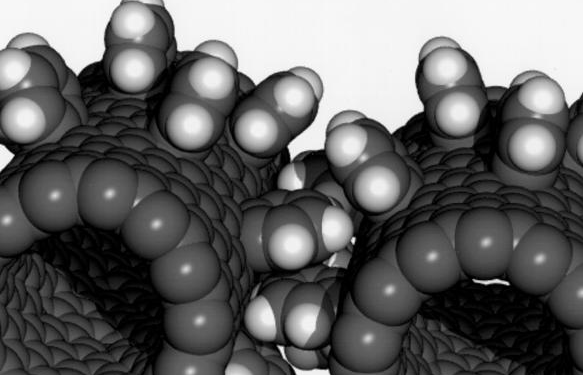Research Develops Novel Drug Delivery System
Scientists at The University of Melbourne have developed an efficient system where tiny objects, such as bacterial cells, are coated with thin film membranes that assemble themselves.

The discovery is anticipated to have important implications for drug delivery as well as biomedical and environmental applications. Published in the latest issue of the journal Science, Professor Frank Caruso from the Department of Chemical and Biomolecular Engineering at The University of Melbourne and his team have developed a new strategy which can be used to coat microscopic materials, leading to a new-generation particle system with engineered properties.
Adaptable and simple approaches for thin-film and particle engineering is of much interest to the drug development industry, however few of the existing strategies have the ability to coat substrates that are different sizes, shapes and composition. "Nanoengineered capsules are attracting much attention as drug carriers, as they have the potential to improve the delivery and effectiveness of drugs while reducing their side effects," explains Caruso.
His latest work with fellow University of Melbourne researchers has involved carrying out aqueous deposition on different inorganic, organic and biological particle templates. They have then used coordinated complexes of natural polyphenols and iron ions to develop the one-step coating of different interfaces. “Film formation is initiated by the adsorption of the polyphenol and directed by pH-dependent, multivalent coordination bonding.”
This work has highlighted the potential for a very fast method which can produce structurally diverse, thin films and capsules that are able to disassemble. The discovery has developed capsules that can be engineered to degrade under different conditions, providing opportunities for the timed release of substances contained inside the capsules.
It is expected that this research will underpin important advances in the delivery of therapeutics in the areas of cancer, vaccines, cardiovascular disease and neural health.
"Our engineered particle system can be assembled rapidly from naturally occurring materials (minerals and nutrients) with specific physical and chemical properties, making it a versatile platform for various applications,” explains Caruso.
Professor Caruso is an Australian Research Council Australian Laureate Fellow with interests in engineered materials, polymer science, biomolecular engineering and molecular recognition. He has been named in the Top 20 Material Scientists in the world by Thomson Reuters for citation impact in the last decade.
